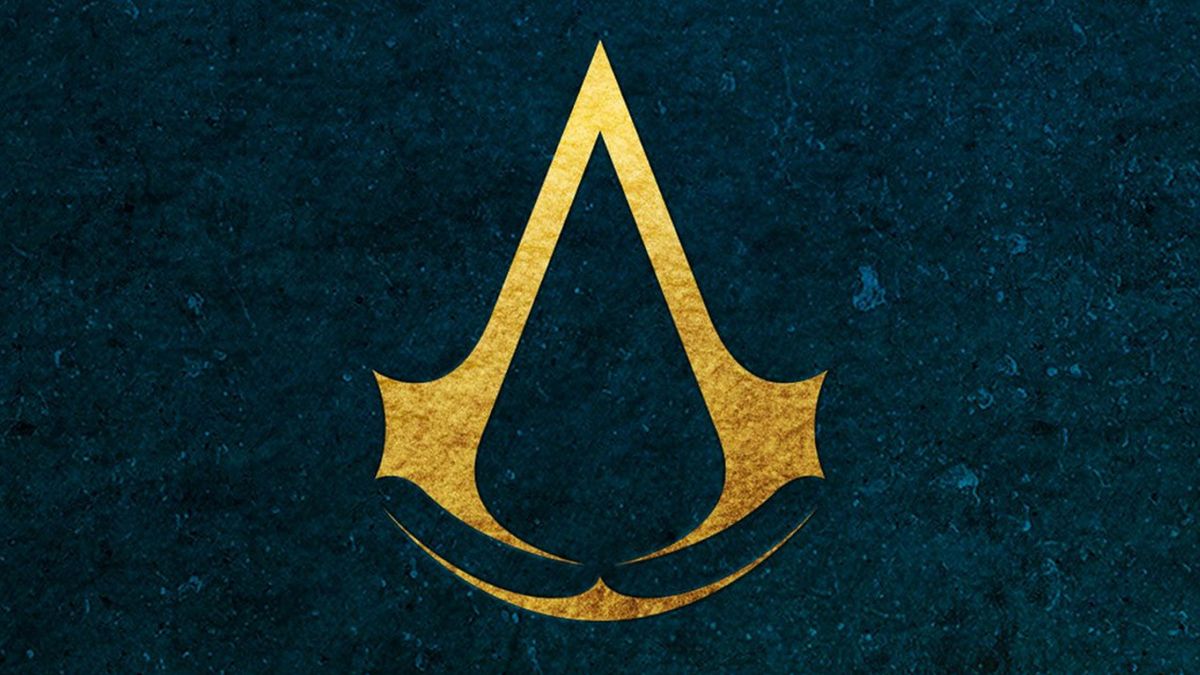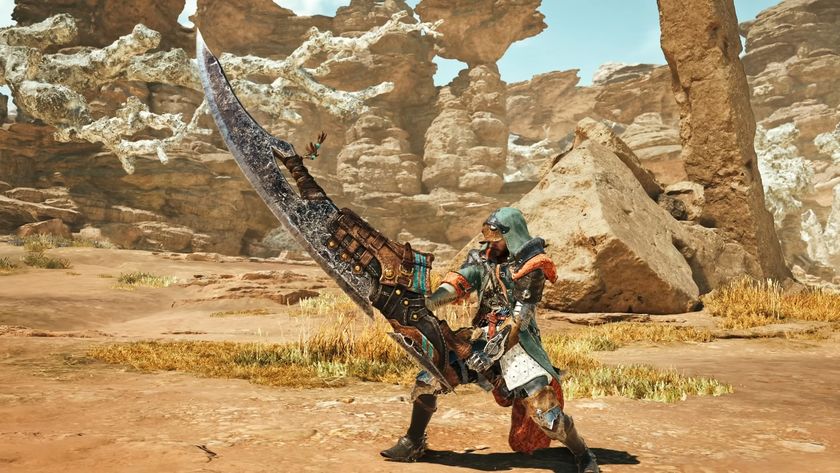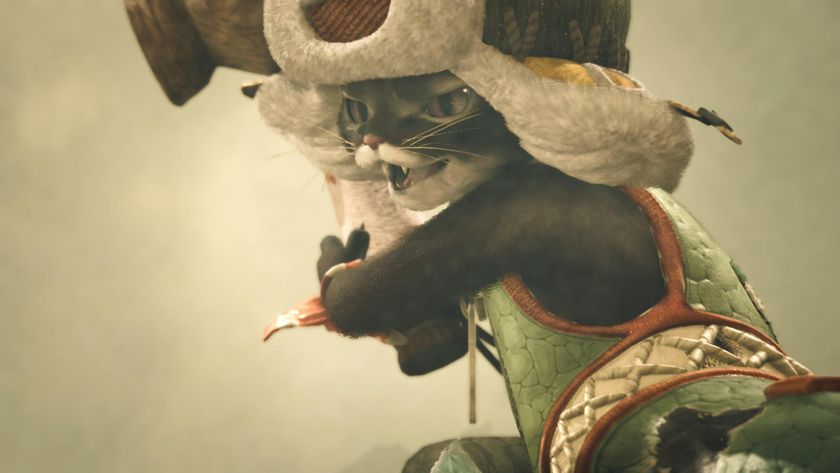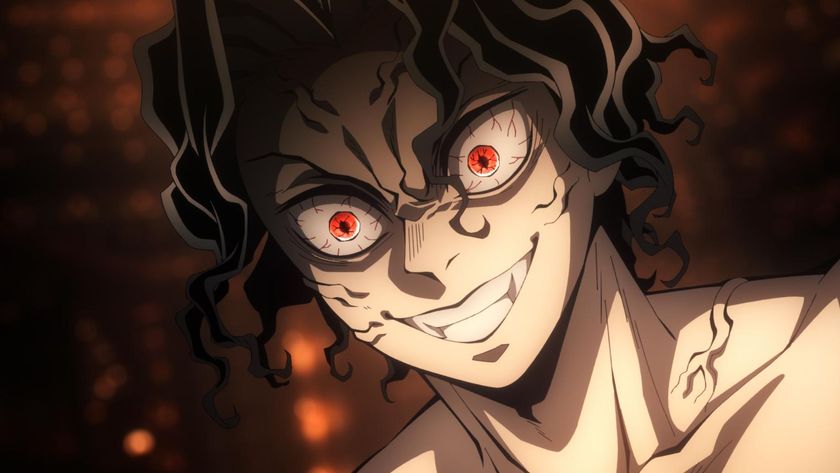Assassin's Creed Infinity can only mean a better, more open future for the series
It's time to evolve the Animus. Again.

It's ironic that the first thing that murderously springs to mind when I think about Assassin's Creed Infinity is the fateful day in mid 2011, when the music in my Assassin's Creed 2 save just… stopped. The cities of Venice and Florence were empty by this point; pillaged of missions and feathers, and entirely stripped of chests. The Platinum had been earned so long ago it was probably gathering digital dust somewhere in the depths of a fully upgraded Monteriggioni. Ezio, it seems, was finally done. But, not to be too much of a double hidden blade wielding toddler, I wasn't. I still wanted to be there, to soak in the atmosphere of Renaissance Italy, even if this particular catastrophic Jesper Kyd stopping bug was perhaps more than a gentle nudge to tell me to head outside.
Fast forward a decade and, after nine months, Assassin's Creed Valhalla's settlement of Ravensthorpe is still bustling. Some of the inhabitants look like they're still suffering the after effects of the mead of the timed Ostara Festival event, but Eivor doesn't have time for pleasantries. Reda has contracts for Opal to buy that absurd new glowing-eyed mount, and Ireland has just opened for business with whispers of trade and rumors of a dark cult which may or may not mean fighting werewolves. Oh, and Jesper Kyd is still here. Finally, no one is kicking me out of the stabby hooded theme park.
To Infinity and beyond
Assassin's Creed Infinity pic.twitter.com/Fsa0EMN3PZJuly 7, 2021
This is a somewhat indulgent way of saying that the future of Assassin's Creed, in many ways, is already literally in play. Ubisoft's announcement of Assassin's Creed Infinity as “an opportunity for one of Ubisoft's most beloved franchises to evolve in a more integrated and collaborative manner” isn't the dramatic death knell of the single player experience. Hidden blades are not about to be moulded into the exotics of Destiny 2. The creative directors now in charge of the series have been making single player focussed Assassin's Creed games for the last decade and they've finally decided to link them up in a meaningful way at some point in the future. Somewhat ironic for a series already digitally connected to the genetic memories of humans from every time period on earth.
When the Infinity news broke, Eurogamer's Tom Phillips posted the above Tweet. The screenshot is from the very beginning of Assassin's Creed Unity as we 'chose' which memories to play in Abstergo's commercial Animus platform. You remember, the nefarious 21st century face of the Templar Order? The ones who are definitely innocent and have no similarities whatsoever to Jeff Bezos' behemoth? Anyway, while at the time this was a way for Ubisoft to neatly dodge a 21st century narrative bullet, it was a tease of a world we just didn't have yet and don't unless we have a decade of discs and downloads to draw from. These were greyed out, unplayable histories, specifically to send lore fans down Reddit holes to find connections. It's easy to wonder if this is a window into the world of Infinity.
History in the making

It's also worth noting that the much-maligned Assassin's Creed Unity is a perfect example of the now closed-off worlds of Assassin's Creed. Hate on Arno all you like but Unity's painterly Paris, Syndicate's London, and Black Flag's sprawling Caribbean are all just kind of… gone. Yearly, closed game worlds with their own somewhat convoluted ecosystems of skills and abilities, but, vitally, rich history.
The gilded (if reasonably pointless) interiors of grand Paris townhouses, the pub songs specifically written to be performed in areas of London as you freed children from Victorian workhouses, the level of historical detail worked into a creaking North Atlantic galleon. A connected Animus ecosystem would mean that whenever the next time period is announced, we could still return to previous iterations. Assassin's Creed Infinity could mean that history might not always be consigned to, well, history. Suddenly, Valhalla's almost unexplainable cross save ability via Ubisoft Connect doesn't seem so strange. If our progress can now cross consoles, where else can it go?

"Hate on Arno all you like but Unity's painterly Paris, Syndicate's London, and Black Flag's sprawling Caribbean are all just kind of… gone"
The big changes in Assassin's DLC over the last two games has been especially indicative of a more living, evolving world with a full store of add-ons and extra aesthetic options. Gone are the 3-4 hour long extra single player campaigns focussing on Those Who Came Before, and instead both Odyssey and Valhalla have delivered beautiful sprawling maps. Odyssey's Fate of Atlantis DLC is particularly impressive with the three mythical worlds of Elysium, Hades, and Atlantis, each with their own stories, collectibles and side-quests. Suddenly a connected universe where we can skip from Kassandra's Hades, rope launch through the Frye's London, then ride through Eivor's Asgard via whale hunting with the Jackdaw feels like the kind of digital future that should be possible while plugged into the Animus. If nothing else, it makes for a cracking imaginary trailer, eh? Whatever Infinity looks like, connections will be more than just the odd Edward or Ezio skin for the latest release.
Sign up to the 12DOVE Newsletter
Weekly digests, tales from the communities you love, and more
And, finally, while a total homogenization of Assassin's Creed games isn't what anyone wants, it might remove some of the ecosystem whiplash of the past few years. Some additions suit the time period and playstyle, but anyone who has enjoyed becoming an Assassin's Creed archer over the years will know the pain of constantly finding this iteration's way of steering a predator arrow into a skull. Do I need a whole new bow, a skill or maybe just a special arrow? Regardless, Assassin's Creed Infinity at least hopefully means we won't be running out of targets any time soon. Oh, and yes, while I'm writing what's pretty much turned into a wishlist, a return of some kind of multiplayer would be nice too…?
Why fishing in Assassin's Creed Valhalla can be just as fun as toppling the Order of the Ancients.
Louise Blain is a journalist and broadcaster specialising in gaming, technology, and entertainment. She is the presenter of BBC Radio 3’s monthly Sound of Gaming show and has a weekly consumer tech slot on BBC Radio Scotland. She can also be found on BBC Radio 4, BBC Five Live, Netflix UK's YouTube Channel, and on The Evolution of Horror podcast. As well as her work on GamesRadar, Louise writes for NME, T3, and TechRadar. When she’s not working, you can probably find her watching horror movies or playing an Assassin’s Creed game and getting distracted by Photo Mode.

Monster Hunter Wilds revived a play style I fell in love with almost 10 years ago, and now it's one of my favorite ways to play all over again

Monster Hunter Wilds PC players make Steam reviews their 15th weapon as Capcom's RE Engine delivers another Dragon's Dogma 2-sized disaster: "Very immersive game. You can cook a well-done steak on your GPU"
Most Popular



